130,000 Reasons I Gave The Fox Away by Arlene Radasky
In 2004 through 2008, during and after writing The Fox, I had dreams of a big publishing house picking it up and having it reach at least the top half of the New York Times best seller list. Don’t we all? Well, after a friend and I attended the 22nd Southern California Writer’s conference in San Diego, Feb. 2008, my hopes and dreams changed. The first reason was this: Just before I finished my book, I took a long walk through my local Border’s; I imagined I saw my book sitting–right there. But reality set in and as I looked around, I wondered how on earth a person walking through that huge store would be able to find my book! All the other books in the store overwhelmed even the books that were best sellers. The second reason was a writers’ conference I attended after writing The Fox. We were told if an agent or publisher chooses your book, you probably would have to spend money to hire an editor and/or a publicist. The publishing houses barely get the books of unknown authors into stores and Amazon.com. Selling them is all up to you. If you want to sell more than the ten you would sell to your family and friends, (remember Borders) then you have to work at it ceaselessly. This works well if you are retired or independently wealthy. The big publishing houses are in trouble. They can’t give out big advances to new fiction authors because they don’t usually make their money back and don’t spend money on marketing. Comments by agents and publishers on the last panel: “There will be books as long as there is paper.” “We will be here as long as you writer’s do your work. Write the best books you can, do your homework and buy books! Paperback book sales are declining.” “Send your query in with a full marketing plan, or I probably won’t accept you.” And so I decided to give my novel away as an ebook. I wanted it read. I have not been sorry at all. I had seen the surge in digital technology, the Kindle, Apple products and more and at the time of the conference, I knew it was the way of the future. I heard some say, “I love to sit and hold a book in my hand!” but you can put a good leather cover on the Kindle and sit by the fire with a glass of wine and read many books, newspapers, and magazines without putting one down to find the other. They are all right in your hands. iPods can download podcasts for our audible pleasure and I am admitting here and now, that I rarely buy paper books anymore. I have listened to many recorded/podcasted books from Podiobooks.com. Having traveled with a suitcase full of books in the past I now carry many in my iPad. I created a website and loaded a PDF of my book there first. In the first few months, a few more sites picked up and were accepting authors loading books to offer around the world. One has offered free ebooks all along while others charge. Even though I could have charged I decided not to. I recorded it as a podcast for free. My husband talked...
read moreAuthor Spotlight: Julia Rose Grey
Always believing my upwardly slanted penmanship was an indication of some disease, I tried to correct it. I used a ruler under my pen; drew faint penciled lines; and even turned my paper 45O to the left. Nothing worked. I was stuck with thank you notes, addresses and signatures that were low on the left and traveled one-half inch uphill to the right. A nice lady administering a psychological test told me my slanted script indicated how hopeful I was about the future. She elaborated that I had a sense of responsibility for my own behavior and believed in myself. I was, she declared, an optimist. Too young and still mired in the murk left-over from childhood, I did not fully comprehend what she meant. Along the way, I learned to type so that my book reports and nonsensical short stories and poems were perpendicular to the top and bottom of the paper. In high school, my writing skills branched into parody and satire. Once I wrote a take-off of Poe’s poem The Raven in which I lamented having to do homework “evermore.” The teacher liked it for its witty twist. My parents weren’t delighted because they believed the parody indicated a flawed character – a preference of listening to my own drummer’s beat rather than conforming – a trait which remains intact to this day. In college, I was delighted with my ability to churn out term papers. With a few hours research and an afternoon of typing, I could produce a twenty-page paper. Oh the joy! No more necessity for scribbling blurry thoughts all night. Throughout all my childhood, teen years, and into adulthood, I seemed to never tire of the stories my grandmothers told me about their experiences. Although deceased for many years now, I cling to their tales as the Peanuts character Linus cleaves to his security blanket. Which brings me to today. My novels have three qualities: They are uplifting tales, loaded with humor, and steeped in yesteryear. In my first novel, Cry Before Supper, the Campbell family, parents, devoted grandmother and five children start each day with a song and, using happiness as their bond, protect the one child who suffers from a neurological condition that marks him as different. Then, in one swift stroke, irrevocable harm is inflicted upon them by a town local mired in his own bitterness. The family’s joy is shattered. Their future bleak. Except for that one ray of hope. The middle child, Annie, who has the endurance and willingness to provide for others, brings light to them once more. Her account of what happened defines the power of perseverance. My holiday novel, The Dream Catcher, is a whimsical tale about the diminutive Rupert Rumple, who is concerned about the gloom surrounding the town of Greeneville. Despite his many fears, he sets out on a journey to bring back the joy of making dreams come true. A third book is in progress. The current title is They Ran Out of Rhyme. I have an outline and I’m in the midst of filling in the storyline with anecdotes, antics, everything from vintage crystal to flapper-style cloches, and a clash of blamelessness with corruptibility. I live peacefully and happily with my husband of some thirty years in Chester Springs, Pennsylvania,...
read moreCry Before Supper by Julia Rose Grey
It is the early 1960’s. The Campbell family moves from their Philadelphia row home to a larger house in a suburb where they believe they will have a better life. For a while, they do. The parents, devoted grandmother and five children start each day with a song. Bonded by their happiness, they protect the one child who suffers from an undiagnosed neurological condition from abuse and negativity. The family’s joy is their strength. Unfortunately, it is also the source of their demise. The Campbells’ cheerfulness entices a jealous neighbor — someone whom they help in his time of need — to inflict irrevocable harm upon them. Each of the family members is struck hard by this strategy none of them can fathom. The family’s future is shattered. In an instant, the happiness and closeness are gone forever. Most of the Campbells react in way that is uncharacteristic. One child does not. She realizes that family members need attention and, unwittingly, takes on the task of caring for them. The irony is, this child is the one who believes she has neither the perseverance nor the resilience to bear such a weight. The question is, will she, can she, in her own stumbling way, bring the family home once again. Author Interview What are the main themes of your book? The main theme is resilience in the face of daunting odds. The story centers on a close-knit family who experience an unspeakable tragedy. The middle child, the one with the least confidence, is the one who must struggle alone to mend the closeness that was shattered. Who or what inspired your story? My childhood inspired me to write. My grandmother was an extraordinary person who was widowed in 1932, without resources for providing for her two children. Somehow, she gave my mother both a bachelor’s and master’s degree and sent my uncle for a degree in engineering. She lived with us and I will always remember her strength and optimism. What do you like best about your primary characters? The way they protect the child with a neurological disorder that was not yet diagnosed in the early 1960s. What are their worst peculiarities? Bud is a prankster; Betsy is snotty; Annie lacks confidence and isn’t too bright; and Carolyn Rose (Crosey) tries to be naughty because she doesn’t mind the consequences and, in her view, it’s fun to pester Betsy. How does your main character evolve? Annie is the narrator. She’s a loveable child but has no faith in herself whatsoever. By the middle of the book, she is starting to figure out that she does have strength. In the end, she is has developed her own confidence. What’s the principal message you want to send to your audience? There’s no intended message. At least I didn’t write it with something I wanted the reader to discover. I wanted people to have a good read. What’s the nicest thing anyone has said about your book? Angella Graff, an accomplished author herself, said that my book had literary value and compared it to Louisa May Alcott’s Little Women. Yes, I was surprised, too. Her review can be found at Indie Reviews as well as Goodreads. Where can we purchase it? Amazon.com About the Author I’ve always enjoyed writing, fiction,...
read moreQueen of Deception by Trine Villemann
Queen of Deception is the first novel by Danish royal author Trine Villemann. It’s a dark and shocking tale which focuses on the death bed regrets of the Queen of a small anonymous northern European kingdom, as well as the self destructive escapades of the country’s Crown Prince Franz. Queen of Deception offers an unedifying glimpse of life behind the Palace walls, where the cancer stricken monarch, a victim of the most horrifying cruelty, has sacrificed her own happiness in order to fulfill her royal duty. Prince Franz is determined not to follow in his mother’s footsteps. Sensitive and weak Franz is a reluctant heir to the throne. After a miserable childhood, living in fear of his strict and violent father, Duke Alfonso, and ignored by his cold mother, Franz fights tooth and nail to avoid his royal responsibilities. He seeks solace in alcohol, drugs and casual sex, and alarms his minders by surrounding himself with a sometimes criminal entourage. Franz falls in love with a nurse, but his desire to marry her is thwarted by the Palace and he ends up succumbing to a highly ambitious foreign commoner called Vicki. In her final days, the Queen realises that the web of deception she has spun is about to undermine the very institution that she has sacrificed everything to protect. What are the main themes of your book? The main theme of my novel is trying to humanize the royals of today. We always see them on parade, smiling, waving, cutting ribbons and making speeches, but I am convinced that there is much more to a royal life than just that. We idolize princesses like The Duchess of Cambridge, the former Kate Middleton, and Crown Princess Mary of Denmark, to name a few, but what kind of life do these young women actually have? What kind of sacrifices do they have to make to fit their duty into their existence? Can Queens like Elizabeth II and Denmark’s Margrethe even allow themselves to be human? And who helps a Queen if her husband is abusive and violent? I wanted to create a story that explores the human being behind the royal handshake. Who or what inspired your story? I am a former Royal Correspondent for various magazines, newspapers and TV-stations and when you have that job you are, once in a while, allowed a glimpse of life behind Palace walls. Those rare glimpses got me thinking. What do you like best about your primary characters? Their humanity. At the end of the day when the Queen is lying on her death bed she is as human as you and me. The same goes for one of my other main characters, Crown Prince Franz. He is simply unable to adapt to his royal life, but wants freedom. His sensitivity, I think, is very endearing. What are their worst peculiarities? As a commoner it is perhaps difficult to comprehend why the Queen for so many years put up with her violent husband, Duke Alfonso. It is peculiar that she, as the Queen, could not put him in his place, but at the same time it does show – again- that a Queen is also a woman, the only difference being that she once in a while has to wear a tiara. How does your...
read moreAre you Suffering from Writer’s Block? by Toni Seger
There’s nothing that frightens writers more than writer’s block, that massive impenetrable barrier that can crash down between you and the page and make your writing life untenable. The distinguished poet, Friedrich Schiller, sniffed rotting apples to overcome writer’s block. In the 18th century, it was thought this awful aroma stimulated creativity, but the most famous case of writer’s block is probably the celebrated poet Rainer Maria Rilke. Rilke waged a titanic struggle against writer’s block he only won after 13 years of struggle and depression when he produced the Duino Elegies swiftly followed by the Sonnets to Orpheus, some of the most sublime poetry ever written. If you’re afflicted with writer’s block or just flirting with it, here are my thoughts. Writing can be a very stressful activity and what most often hangs up writers is getting started on a new piece. Yes, we get to work sitting down, but there’s still plenty of heavy lifting like the intimidating sight of a blank page. Once you have something to work on, your task changes from getting it down to making it better and because you can always see ways to improve something, that task tends to come easier. The first thing you want to do is make sure your blank page doesn’t stay blank for very long because it’s the blankness that’s making you feel bad. Winston Churchill who liked to paint wrote about his initial struggle to face down an empty canvas. He approached it timidly with the tiniest of strokes so as to avoid making a mistake when his neighbor’s wife grabbed a large brush and placed several bold strokes on the canvas! The effect was immediate. Churchill broke through his inhibitions and threw himself into painting. The principle is the same with words. What most often stops writers is thinking their initial draft has to be perfect when it doesn’t even have to be intelligible. The point of a first draft is to get past the blankness even if what you write is gibberish. Never forget, nothing you write is fatal because you can always rewrite it. An initial draft is a form of free association. You start with your original idea, then let your mind wander and record anything that occurs to you. It may be dialogue or description or narration. It may be a reference to something you read somewhere else. It may be a news item or a casual conversation you overheard. It could be anything. Whatever it is, you’re intrigued so let your mind play with it and write down whatever occurs to you. At this point, don’t try to control the process. Just follow a thought wherever it leads. Chances are, something more will occur to you. So, write it down. Don’t expect to be in complete control of the process until you’ve roughed out an entire draft and are ready to refine and polish. Control also plays a role when you’re fleshing out ideas, improving syntax, reworking words so they flow instead of lurch, but in the beginning it’s all about letting go. Give up control. Let your mind express itself. It’s impossible at an early stage to have a bad idea, so write down anything that occurs to you and don’t judge it. Nothing causes a block faster...
read moreWriting Fast-Paced Action Scenes by Rayne Hall
In scenes with fast action – such as chases and fights – your writing style needs to reflect the speed. The words you choose, and the way you structure your sentences, can create a fast, exciting pace which takes the reader’s breath away. Sentences The length of your sentences creates the pace of your scene. In a fight scene, sentences need to be short, especially when the action speeds up. If a sentence is more than twelve words long, split it into two shorter ones. Some sentences can be very short indeed: He leaped. She kicked. Blades clanked. To vary the rhythm, insert the occasional medium-length sentence, but avoid long ones with many clauses. When the action happens really fast, you can use sentence fragments instead of complete sentences; For example: He had to get through to the castle. Had to reach that door. He hacked, swung, slashed. Five paces left. He leaped. Use this trick sparingly, only for the fastest-paced moments, since sentence fragments become tedious if overused. Words Short words create a fast, sharp rhythm, so use the shortest available word for the job. Words with single syllables are best. Two syllables are ok, three syllables are so-so, and anything longer doesn’t belong in a fight scene. When revising your fight scene, replace long words with short ones. Instead of immediately write at once. Instead of endeavour write try. Instead of indicate write point at. Instead of investigate write check out. Verbs (hack, swing, slash, kick) convey action and create a fast pace. You can use several verbs in a sentence, for example: She bit, she scratched, she screamed. or They slashed and sliced, they blocked and parried. Simple Past Tense (hacked, swung, slashed, kicked) is the best for fast-paced action. Avoid Past Perfect Tense (had hacked, had swung, had slashed, had kicked) because it’s a pace-killer. Be careful about using the ing-form of the verb (present participles and gerunds: hacking, swinging, slashing, kicking). Although it conveys immediacy, it sounds soft and can spoil the pace, so use it sparingly. Adjectives (blunt, strong, irresistible) slow the pace, so use only a few. Adverbs (bluntly, strongly, irresistibly) slow the pace enormously, so you may want to avoid them in your fight scenes. Use as few conjunctions and link words (and, but, or, when, then, after, before, while, because, in order to, therefore, thereby, as) as possible. For example, instead of He grabbed the liana with both hands, and then he swung across the stream and landed in the mud. write: He grabbed the liana with both hands, swung across the stream, landed in the mud. Instead of After that, he raised his arm, thereby warding off blows. write: He raised his arm to ward off blows. Euphonics T, K and P sounds create a fast pace and a sense of aggressiveness, so use lots of them in action scenes. For example: Instead of swallow write gulp. Instead of hold write grip. The best sound for chases, races and anything happening really fast is R. Use it a lot: hurry, run, roll, race. Euphonics are especially important if you plan to publish your book in audio format or if you give public readings. Avoid Internal Thoughts Don’t allow your protagonist to think, consider, wonder, analyse, realise, worry or contemplate while...
read more(Writer’s) Relief For All Your Submission Aches And Pains
by Writer’s Relief Suffering from submission fatigue? Writer’s Relief is happy to be here on Virtual Writers today to tell you a little bit about how our system helps creative writers make better, more professional, more efficient submissions to literary agents and editors. The Beginning of Writer’s Relief Writer’s Relief was born in 1994 when a friend asked Ronnie L. Smith to manage her poetry submissions for her. Since then, we’ve been helping poets and short prose writers successfully submit their works for publication in literary journals. We’ve also been helping novelists, memoirists, and other book authors connect with literary agents so they can get their books published at major presses. How We Work We can handle as much or as little of the submission process as our clients like. Some clients want us to do everything—from proofreading and formatting, to researching the best-suited literary agents or editors, to putting submissions in the mail (or submitting online), to tracking editorial feedback from readers. Other clients just want our expert targeting; we do the research and provide a handpicked list of the best markets for a given work. Either way, writers pay a flat fee for this ultra-specialized secretarial and consulting service. Visit our website to learn more about our various services, and find the one that will solve your submission woes. What Can Writers Get For Free? Writer’s Relief offers many, many freebies on our website. These are just a few of the free writers resources that can improve your submission strategy: Free Publishing Tool Kit Free Tutorials For Online Submissions Free Subscription to the hot publishing leads and tips in Submit Write Now! (30,000+ writers currently subscribe) Plus, we also host regular contests, giveaways, and games on our social networks like Facebook and Twitter. So stop by and say hello today! Writer’s Relief has been helping creative writers make better, more effective submissions since 1994—and we’re still going strong. Thanks so much to Virtual Writers for hosting us today! QUESTION: What part of the submission process do you find most burdensome? Picture Credit: Colin Adamson This article was first published at Author Essentials on July 30th,...
read morePoetry and Craft by Timothy Victor Richardson
Poetry, at its best, goes beyond anything we can put a finger on to something we can only say has an emotional force we can’t forget. That is why I believe it is a sacred art form and why it has lasted for so many centuries. As with all the arts, it’s the feeling a poem gives us we can’t forget and want to feel again. It’s the reason we return, again and again, to lines that effectively capture something in the deeper reaches of the collective soul. In attempting to reach this deeper “something”, it greatly helps to master all the tools and techniques the craft of poetry encompasses. Whether writing dialogue for a play, prose, free verse or formal poetry, it’s all enhanced by mastering the craft. The craft of poetry’s basic elements are form, meter, rhythm and rhyme. Forms like sonnets, villanelles and sestinas are like human bodies that can perform who knows how many different kinds of dance. While the content of a dance or a poem can be old and stale or new and exciting, the instrument (the body or form) can be used to express anything from the past, present or future. Any whole body is capable of performing any kind of dance. All poetry, all art has a form. It’s just a question of how well the form suits what the poet seeks to realize. Meter describes where the accents fall and how many unaccented syllables there are between them. As the poet, Timothy Steele, points out in “Prosody for 21st-Century Poets”, because different words carry lighter or heavier accents, the variety of rhythms that can be superimposed on any given meter is endless. A poem’s meter is like a musical time signature. How many different tunes can be written in 4/4 time, for instance? Any number. How many lines can be written in iambic pentameter, say? The answer is the same. What makes one line better than another (among many other things) is how well the poet harmonizes meter and rhythm. When they are working together, a memorable line is more likely to result. However constraining meter might feel when a poet first uses it, with practice, any discomfort wears off in time. Practicing with meter using different rhythms is like playing a musical instrument. At first, nothing feels more clumsy than finding the right words within the strictures of meter. Like any other discipline, however, practice and experience make it feel far more natural until it becomes second nature. After all, no one expects a neophyte skater to leap and spin with perfect form and it’s no different with meter and rhythm. The more conscious you are of them, the better the effects you produce will be. People often remember the melody of a song even when they’ve forgotten the words and it works the same with poetry. The rhythm of a line is recalled more readily than its words and that’s due to the feeling it instills. Different meters which are all variations on the human heart beat, elicit different emotions and emotion is at the heart of the poetic art and the profound effects it can have. Finally, rhyme. Rhyme can help propel a reader through a poem or turn him/her off completely. At its best, it makes...
read moreSome of the Most Habit-Forming Things are Good for You! by Ginger Jorgental
Virtual Writers holds a daily Writers’ Dash exercise (Monday-Friday at 6am and 6pm PT) that benefits both students and writers by expanding their knowledge of the English language. According to Sue Dymoke (2003), part of the instructional process of creative writing is to attempt the usage of new words. Other aspects of creative writing development include the initiation and expansion of ideas as well as the process of planning and reviewing (Dymoke, 2003). By drawing from personal reservoirs of knowledge, each writer gains insight into his or her world view. The ongoing exchange of dialogue and support at the dash helps improve the self-confidence that so many writers need. Through the absorption of content found in each other’s writings, participants fuel one another’s progress while at the same time garnering value by observing a multitude of individual writing styles. Within the constraints of a 15 minute time limit, writers are faced with the challenges of composition: form, word usage as well as content (Dymoke, 2003). They must make decisions about the tone of their writing, the delivery of their words, and at the same time be mindful that others will read what they have written. With the option to post their Dash pieces to the Virtual Writers blog, there is an immediacy of exposure which can benefit writers and that engenders confidence amongst peers. Also, by making writing habit-forming, the daily Dash supports a diet rich in creative writing. Writing on a daily basis instills discipline, while at the same time this routine allows an immense inborn quality to emerge. Writing gives many lives new meaning. I’m sure you will find that exploring creative avenues will allow you to delve into depths which cannot be explored in the confines of reality. And after a period of time writing in this way, many people find that they have amassed quite a large diary of their own work, much of which can be edited and reworked for the purposes of self-publishing. For those of you who are considering self-publishing, I encourage you to explore your options and seek out publishing partners who are reputable. In North America, a high rating from the Better Business Bureau is indicative of the propensity to conduct sound business. Seek out consumer evaluations and research all registered complaints against a given company before signing up. Price points in self-publishing include the initial publication package, which may include services such as copyright registration, book sellers insurance (in case of returns), cover design and copy editing (line editing for spelling and grammar only). Look for e-publishing as well as traditional product offerings inclusive in the package. Additional costs include: high-pixel image for the front cover, content editing (highly recommended!), and promotional materials. Consider everything that will go into the making of your book and create a project plan that includes registration of your own URL and website construction and maintenance. In a highly competitive market, Indie writers need to find platforms to showcase their talent. Demonstrating the quality of your work and your passion for the project are absolutely necessary. References Dymoke, Sue (2003). Drafting and assessing poetry: A guide for teachers. Chapter 2: Drafting poetry. Paul Chapman Publishing: London. This article was first published at Author Essentials on March 18th, 2013. Ginger Jorgental is the author of Puzzle Pieces, a...
read moreHow To Deal With Rejection by Lucy V Hay aka @Bang2write
Any writer who believes s/he can go from “aspiring to published” writer without experiencing the bitter sting of rejection is in for a shock. Whether you want to be published the traditional way or go the indie route, rejection is part of the journey, whether it means being unable to get past “the gatekeepers” or a reader “advising” others on social media to actually stay away from your work! So, as we’ve established: rejection hurts and it’s going to happen, regardless of how brilliant a writer you are. Even the greats remember their first rejection letters and even still get rejected from time to time. The key is knowing how to deal with it, so here are my steps on turning rejection into a positive, rather than negative, experience: 1) Walk Away Just been rejected? Don’t obsess over it, reading the email or letter over and over. Do something else to take your mind off it – ANYTHING. Outline a new project; go for a walk; eat some chocolate; phone a friend. Whatever works for you (bar airing your grievances online on social media!). All that matters at the moment is the decision is in and it’s a negative. So give yourself some time to process the disappointment and calm down, before you do anything else. 2) Read between the lines No feedback other than a “thanks, but no thanks”? Then the journey is over for that opportunity. There’s absolutely no point second guessing what could have “gone wrong” … Maybe nothing did, it just so happens it wasn’t “right” either. That can happen. As a reader for literary agents and competitions, I have seen this happen to LOTS of great writing. That does NOT mean your submission was automatically crap. So chalk it up – THIS TIME – and move on. Don’t dwell. You have some feedback? Don’t ignore it. Remember, all industry pros are mega busy, so if they have taken the time to give you some feedback, they must have found your submission notable *in some way* and there’s a strong chance they want to help you be more successful “next time”. Honest guv! Now how this works may depend, so this is where as writers we need to really read between the lines: i) Your feedback seems really negative. If the industry pro seems harsh or negative about your work, talking about the concept behind it or the characters being clichéd, “tropey” or familiar, take note. This is a clue that the industry pro has seen ideas or writing *like* yours A LOT. Obviously in this crowded marketplace that’s not a good thing, because your writing needs to stand out. So what can you do to make your concept, characters or writing more UNUSUAL? Do some research re: your target audience and what has gone before already, don’t just trust to instinct. ii) Your feedback seems really positive. Somewhat ironically, my Bang2writers often find positive feedback in rejections even MORE confusing: if that industry pro likes their characters, themes, prose or whatever, why did they reject the work?? The answer to this is simple. The person rejecting the work LIKED IT, but felt the writer in question was “not ready”. The reasons for this may be varied, but if they’re mentioning those things they liked...
read more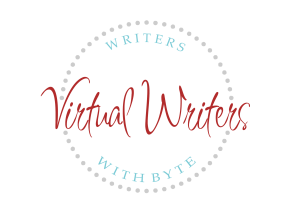



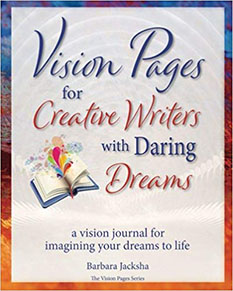
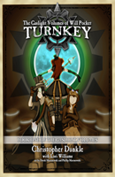
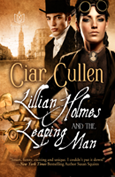
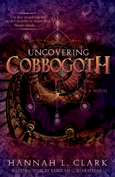
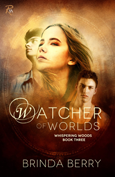
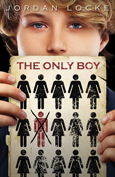
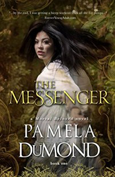
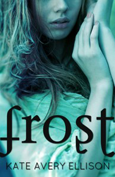
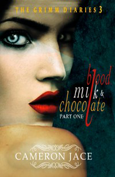
Follow Me